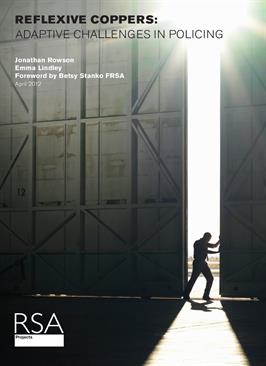Years of ‘group think’ within the police has had a negative effect on its relationship with the public. Reflexive Coppers argues that the police could improve community relations by gaining a better understanding of the ways in which their minds function and how this impacts on their work.
The embedded culture of targets, hierarchies and risk aversion within the police has had a detrimental impact on the quality of interactions both within the police force and with the public. Results-driven workflows have lead to poorer quality of attention, aversion to risk has discouraged officers from speaking and thinking independently and the need to follow hierarchical structures for career progression has forced officers to look inwards and upwards rather than out to the communities they serve.
Yet, many forms of policing, especially community policing, depend upon precisely these aspects of internal and external communication, especially at a time when police budgets are being cut and the public are called upon to fill gaps in provision.
This report explores how a different approach to behaviour change might be applicable to police work, which is concerned with at least three different kinds of interrelated behaviour change: the behaviour of officers, the behaviour of criminals, and the behaviour of potential and actual victims of crime.
With the help of participants from within the police and in the context of the RSA’s Social Brain programme, the report examines how police officers can ‘choose and shape’ habits. The aim of the preliminary research was to decide which knowledge relating to brains and behaviour to explore with the police officers taking part.
Three key occupational strands were identified in the context of police work: habits – what it means to be a police officer operating within a set of cultural expectations, attention – how to make good decisions while under pressure to do the right thing quickly, and decision-making – a significant facet of police work which resonated profoundly with officers.
The report concludes that there should be more institutional support for changing police culture – including integrating a package into police training regarding self-development, improving professional performance and taking more control over individual thinking and behaviour.
pdf 2.7 MB
Contributors




Be the first to write a comment
Comments
Please login to post a comment or reply
Don't have an account? Click here to register.